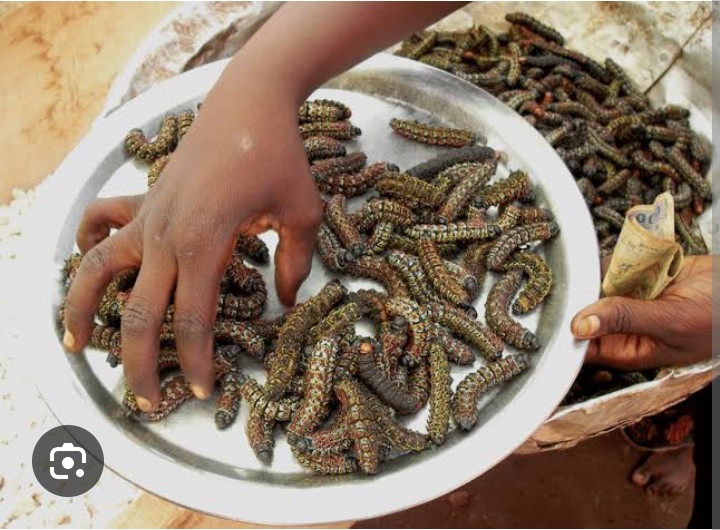How to Start Caterpillar Farming in Kenya and Make Millions of Money
Outline
1. Introduction
2. What is Caterpillar Farming?
Definition
Importance in Kenya
3. Species of Caterpillars
– Common species in Kenya
– Varieties suitable for farming
4. Legal Requirements
– Permits and licenses
– Compliance with regulations
5. Environmental Requirements
– Climate and habitat
– Housing and feeding needs
6. **Market for Caterpillars**
– Local demand in Kenya
– Export opportunities
7. Prices of Caterpillars
– Factors influencing prices
– Profitability analysis
8. Why Start Caterpillar Farming?
– Economic potential
– Environmental benefits
9. **Benefits of Caterpillars**
– Nutritional value
– Medicinal uses
10. Conclusion
11. FAQs
1. How much capital do I need to start caterpillar farming?
2. Are there any risks associated with caterpillar farming?
3. What is the growth cycle of caterpillars?
4. How do I ensure the quality of my caterpillars for the market?
5. Can I start caterpillar farming as a side business?
Introduction
Caterpillar farming, also known as edible insect farming, is a lucrative venture with a rising demand globally. In Kenya, this industry presents a unique opportunity due to the country’s diverse ecosystems and the rich biodiversity of caterpillar species. This article explores how to start caterpillar farming in Kenya and tap into the potential for substantial profits.
What is Caterpillar Farming?
Caterpillar farming involves the rearing of caterpillars for various purposes, including human consumption, medicinal uses, and animal feed. In Kenya, caterpillar farming has been practiced for generations, especially among communities that traditionally rely on caterpillars as a source of protein and income.
Species of Caterpillars
In Kenya, there are several species of caterpillars that are commonly farmed for their nutritional value and economic importance. Some of the popular species include the African armyworm, the mopane worm, and the African emperor moth caterpillar. These caterpillars are known for their high protein content and are sought after both locally and internationally.
Read also:How To Start and Make Millions Of Money From Chameleon Farming in Kenya.
Legal Requirements
Before starting a caterpillar farm in Kenya, it is essential to familiarize yourself with the legal requirements. This includes obtaining the necessary permits and licenses from the relevant authorities. Compliance with regulations ensures that your farm operates legally and avoids any potential fines or shutdowns.
Environmental Requirements
Caterpillars have specific environmental requirements for optimal growth and development. This includes the right climate, habitat, and feeding needs. It is essential to provide suitable housing and food sources to ensure the health and well-being of your caterpillars.
Market for Caterpillars
The market for caterpillars in Kenya is vast, with a growing demand for these insects both locally and internationally. Locally, caterpillars are a popular delicacy and are often sold in markets and supermarkets. Additionally, there is a significant export market for caterpillars, especially in Europe and Asia, where they are valued for their nutritional and medicinal properties.
Prices of Caterpillars
The prices of caterpillars vary depending on factors such as species, size, and quality. Generally, caterpillars can fetch a good price in the market, especially during peak seasons when demand is high. By producing high-quality caterpillars, you can maximize your profits and make millions from this venture.
Read Also:China Cat Farm: Why Chinese Farmer Raise Millions of Cat For Delicious Meat.
Why start caterpillar farming?
There are several reasons why you should consider starting caterpillar farming in Kenya. Firstly, caterpillar farming is a sustainable and environmentally friendly practice that requires minimal resources compared to traditional livestock farming. Additionally, the demand for caterpillars is steadily increasing, presenting a lucrative business opportunity for farmers.
Benefits of Caterpillars
Caterpillars are not only a rich source of protein but also contain essential nutrients such as vitamins and minerals. They are also used in traditional medicine for their medicinal properties. By farming caterpillars, you can contribute to food security and nutrition while also benefiting financially.
Conclusion
In conclusion, caterpillar farming is a viable venture in Kenya with the potential to generate significant income. By understanding the legal and environmental requirements, tapping into the market demand, and producing high-quality caterpillars, you can start caterpillar farming and make millions of money.
FAQs
1. How much capital do I need to start caterpillar farming?
– The capital needed to start caterpillar farming depends on the scale of the operation. However, a small-scale farm can be started with a relatively low capital investment.
2. Are there any risks associated with caterpillar farming?
– Like any farming venture, caterpillar farming is not without risks. These include disease outbreaks, pest infestations, and market fluctuations. However, with proper management practices, these risks can be minimized.
3. What is the growth cycle of caterpillars?
– The growth cycle of caterpillars varies depending on the species. However, most caterpillars go through a series of molts before pupating and emerging as adults.
4. How do I ensure the quality of my caterpillars for the market?
– To ensure the quality of your caterpillars, it is essential to provide them with a clean and healthy environment, proper nutrition, and regular monitoring for any signs of disease or stress.
5. Can I start caterpillar farming as a side business?
– Yes, caterpillar farming can be started as a side business, especially if you have limited time and resources. Starting small and gradually expanding your operation is a good strategy to minimize risks.
